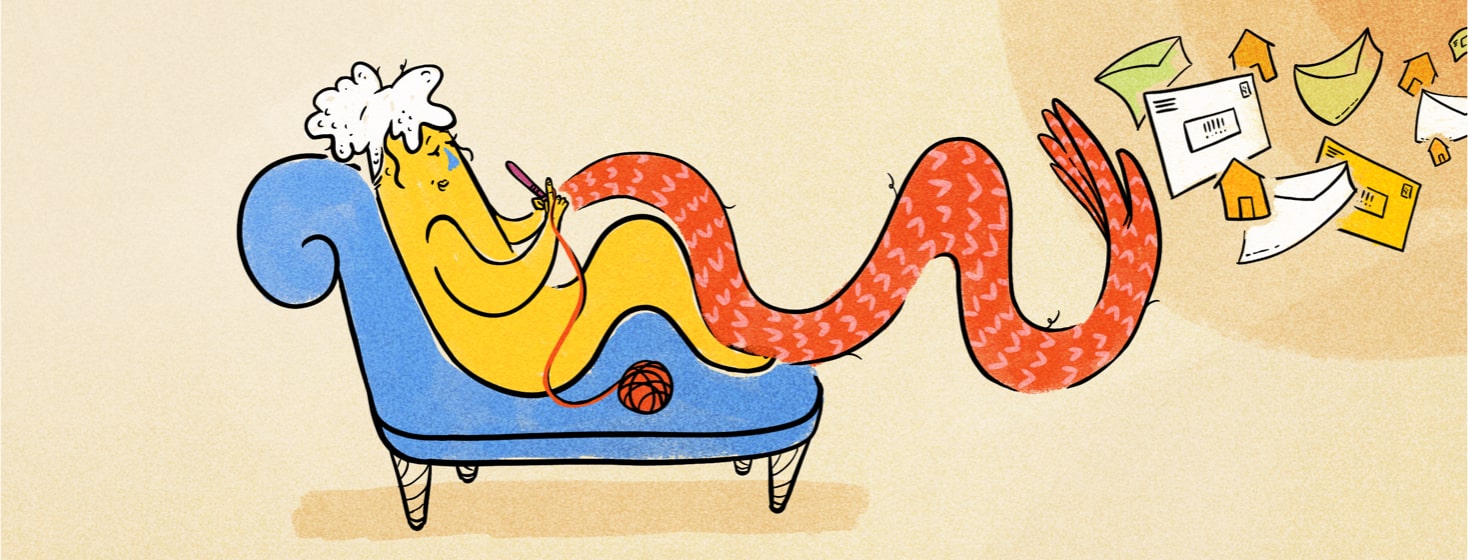Managing Stress and Narcolepsy: Part 1
Narcolepsy and stress often go hand-in-hand. Cataplexy is a temporary paralysis that people with type 1 narcolepsy (like me) experience. It is triggered by heightened emotional states.1
Other ways in which stress affects narcolepsy outcomes are more indirect. For example, cortisol is the "stress hormone." It is released by our bodies in response to stress, but it also helps regulate our sleep-wake cycle. Higher cortisol levels are linked to ongoing (chronic) sleep issues such as obstructive sleep apnea and insomnia. Higher levels of stress can cause more disrupted sleep. In turn, more disturbed sleep can cause more stress.2,3
Higher stress levels mean a lower quality of life
People with chronic sleep disturbance often have higher levels of cortisol in their bodies at key times in the sleep-wake cycle, so they are often more stressed and anxious than those without disturbed sleep. As people with narcolepsy who are chronically sleep deprived, we can sometimes be less equipped to handle stressful situations than others. Our bodies are under a lot of stress from being chronically sleep-deprived. So, when we experience severe stress, it can have detrimental effects on our quality of life.2,3
Increased stress can worsen narcolepsy symptoms
Stress reduces our already low quality of sleep, so we may experience increased narcolepsy symptoms. This could include:4
- Excessive daytime sleepiness
- Cataplexy
- Sleep paralysis
- Broken sleep
- Insomnia
- Mood swings
For example, when I am super stressed out over housing, medical insurance, Social Security, or any of the other struggles that come along with being disabled in this world, I find that my narcolepsy symptoms worsen considerably. This hinders me in finding solutions to my problems. How am I supposed to problem-solve when I can’t find the energy to get dressed or make myself breakfast?
Finding healthy ways to manage stress and narcolepsy
I find it important to reduce my daily stressors. I also engage in healthy coping mechanisms when experiencing acute stress. Practicing these coping mechanisms, even when things are going smoothly in life, is important. It gives me the opportunity to increase my ability to tolerate life’s daily stressors and my resiliency to acute stress. Here are some of the healthy stress-relieving activities I turn to:
1. Arts and crafts
Some of my favorite activities include crocheting, embroidering, painting, sewing, cooking, baking, clay art, pottery-making, cutting up old magazines to create collages, making jewelry, creating cards to mail to friends, and much more! The best part about arts and crafts is that I can do them on low-energy days (which tends to be most days).
2. Exercise
Exercise can be great for reducing stress, but too much can also be stressful for the body. When it comes to relieving stress, I like to use gentle exercises. For me, this includes dancing, hiking, walking, yoga, and other low-intensity activities. Even something as simple as housework can be used as exercise.
3. Connecting with others
I utilize support groups, social media, and FaceTiming friends for staying connected.
4. Practicing mindfulness
Mindfulness is the act of bringing your attention to your experience. It is known to relieve stress.5
Sitting and meditating for long periods of time is difficult for me, because my narcolepsy makes me fall asleep if I sit still for too long. Some ways that I practice mindfulness include birdwatching, watching the sun rise or set, or making a cup of tea (taking the time to watch the water boil, watch the tea steep, and smell the tea deeply before each sip).
How do you relieve stress while managing your narcolepsy?
What are some ways you like to relieve stress? Do you use different techniques depending on if you are in a narcolepsy symptom flare? Please feel free to share with our community!
Looking for more tips on how to manage stress while living with narcolepsy? Read Part 2 here!

Join the conversation